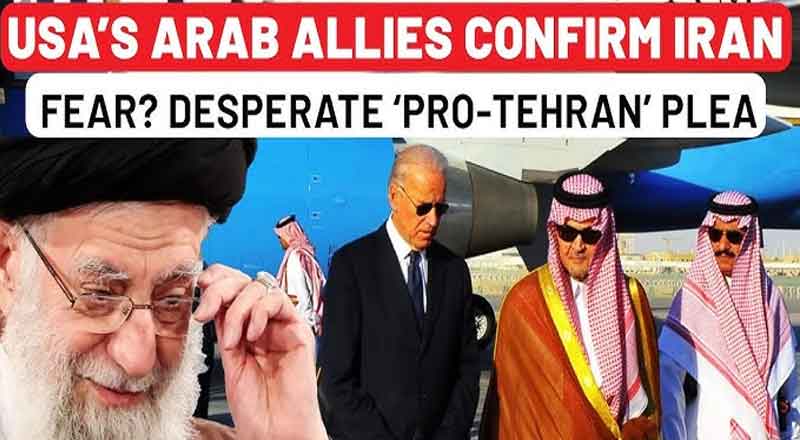Escalating Tensions Between Israel and Iran
The Israel-Iran conflict has long been a source of instability in the Middle East, with both nations engaging in indirect military confrontations. Israel views Iran’s nuclear ambitions and support for militant groups as significant threats, while Iran opposes Israel’s regional influence. Recent developments, including Iran’s ballistic missile attack on Israel and looming Israeli retaliation, have heightened tensions, drawing global attention to the possibility of a broader regional conflict.
West Asian Allies Urge Restraint, Oppose Offensive Use of Airspace
In the wake of Tehran’s ballistic missile attack on Israel, tensions are high, with an Israeli military response expected soon. While the United States has voiced its support for Israel’s right to respond, it has also cautioned against targeting nuclear sites or oil facilities, emphasizing that any counterattack should be measured.
Amid these developments, several West Asian nations, including Jordan, Saudi Arabia, Qatar, and the United Arab Emirates (UAE), have made it clear to both the U.S. and Israel that they do not support their airspace or territory being used for offensive operations against Iran. This warning was issued out of concern for potential retaliation from Iran, which has threatened to strike any country that facilitates an attack on its soil.
According to reports from The Wall Street Journal, these countries, which are U.S. allies, fear that their involvement in an Israeli attack on Iran could lead to severe consequences, including military strikes on their own infrastructure. As major oil producers, they are also wary of the economic fallout from a disrupted oil trade, should the conflict escalate further.
Support for Defensive Measures, But No Offensive Operations
Despite their opposition to offensive actions, West Asian nations have been supportive of Israel’s right to defend itself against Iranian aggression. Jordan, Saudi Arabia, and other Gulf states have previously joined the U.S. and European nations in aiding Israel’s defense efforts when Iran launched hundreds of rockets and drones at Israeli targets earlier this year. This defensive collaboration continued during Iran’s most recent attack, demonstrating a willingness to cooperate in efforts to shield the region from further violence.
However, these nations have drawn a clear line, allowing defensive operations within the region while refusing to endorse any attacks on Iran. This stance reflects a delicate balance, as these countries seek to avoid becoming embroiled in a full-scale regional war.
Concerns Over Regional Stability and Oil Disruption
The primary motivation behind West Asia’s opposition to offensive strikes on Iran is the fear of escalation. A full-blown war between Israel and Iran could destabilize the entire region, disrupt oil supplies, and harm the economies of Gulf states, which rely heavily on oil exports. The fragile peace between Iran and its neighboring countries, facilitated by backchannel talks between the U.S. and Arab nations, could collapse if tensions worsen.
Iran has already warned its neighbors that it would retaliate harshly against any nation that participates in an attack, particularly targeting civilian infrastructure and key facilities in Israel. These threats, coupled with concerns over the region’s stability, have led countries like Jordan and Saudi Arabia to advocate for restraint.
Israel’s Options: Challenges in Mounting an Attack
While Israel remains determined to retaliate against Iran for the missile strike, the restrictions imposed by regional allies could complicate its plans. Although Israeli warplanes can potentially reach Iranian targets via Syria or Iraq, the lack of access to regional airspace for refuelling or logistical support could pose significant challenges.
Reports suggest that while Israel has considered various targets, including military and intelligence establishments in Iran, a strike on Iran’s nuclear facilities may be unlikely. A direct attack on Iran’s nuclear infrastructure risks igniting a broader conflict that could embroil the entire region, something Israel appears keen to avoid.
Rising Tensions with Uncertain Outcomes
As the situation continues to unfold, West Asian nations are playing a critical role in urging restraint and preventing further escalation. While Israel is likely to respond to Iran’s attack, the regional dynamics and refusal of key nations to participate in offensive operations could limit the scope of any military action, leaving the future of this volatile conflict uncertain.
(With inputs from agencies)





